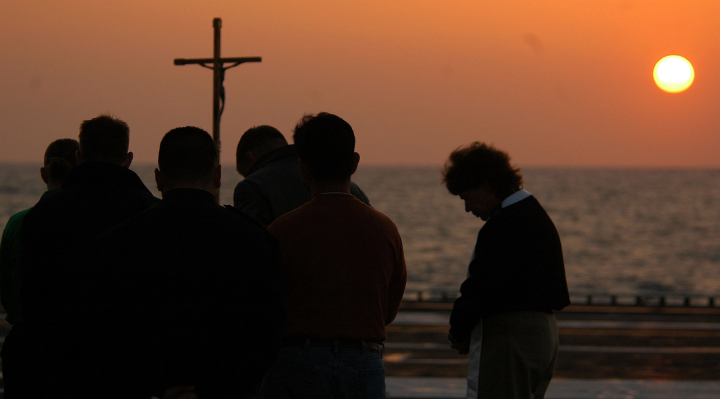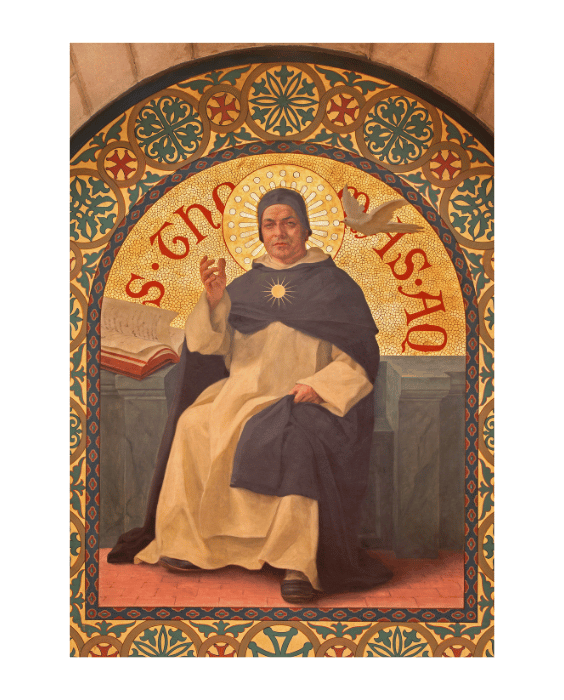
When we follow the clues that point us to the existence of God and gain the confidence to turn to him, we are taking the first steps toward establishing an unforgettable friendship that will provide us with great stability and serenity, since we will be able to rest confidently leaning on the one who never fails.
God seeks us out and speaks to us as friends, and expects us to respond to him with our friendship, believing in him, trying to understand what he tells us, and accepting without reservation what he proposes to us.
Faith is the response to God's invitation to communicate with him and to enjoy his company. Through faith, man submits his intelligence and his will completely to God, assenting to what God and deciding to live in a way that is consistent with these truths.
But is this a reasonable position? is believing human? is a person in his right mind who submits his intelligence to what someone else tells him, or puts his decisions in the hands of someone else?
Faith is first and foremost a personal adherence to God, and at the same time and inseparably free assent to all the truth that God has revealed.
It is true that it would be vain and wrong to place such faith in a creature, but is the same true of God? The reality of things depends fundamentally on the answer to one question, which is the fundamental one: Does God exist or does he not exist? If it did not exist and was only an ideological construct, it would be meaningless. But what if it does exist?
Let's say that the option of giving this assent involves taking a risk, because it is not possible to intellectually control all reality. It requires an exercise of trust, something like that which would be required to jump into a swimming pool for a person who has never done it before. He sees other people who are there and enjoying the bath, but the first impression is that if he dives in he will go to the bottom and drown.
To lend assent of faith We cannot wait to find a mathematical demonstration of the existence of God or of each of the truths that he has revealed. It involves a risk, and therefore requires help that we have to receive from outside. Faith is a gift of God, a supernatural virtue infused by him. In order to give a positive response to what God has revealed, God's grace is necessary, which comes forward and helps us, together with the inner help of the Holy Spiritwhich moves the heart, directs it to God, opens the eyes of the spirit and gives everyone a taste for accepting and believing the truth. So teaches the Second Vatican Council (Dei Verbum, n.5) and the Catechism of the Catholic Church (n.153).

Pope Benedict XVI says of St. Thomas Aquinas that he is an example of the harmony that should exist between faith and reason.
However it is contrary neither to man's freedom nor to his intelligence to place his trust in God and to accept the truths revealed by him. Already in human relationships it is not contrary to our own dignity believe what other people tell us about themselves and their intentions, and trust their promises (as, for example, when a man and a woman get married). We trust our parents when we are little, we trust our teachers and what the textbooks say. We trust what we read in the press, hear on the radio or see on television. We do not have the time or the possibility to experimentally contrast all the information we receive. In normal life, almost everything we know is because we have trusted someone else. So we it is not contrary to our dignity to trust in God.
The reason for believing does not lie in the fact that the revealed truths appear to be true and intelligible in the light of our natural reason. We believe because of the authority of God himself who reveals, and who can neither deceive himself nor deceive us.
Also in real life, we need to contrast at least some data of what we are told and verify if they are plausible, although many times we cannot prove them. Science advances more by induction than by mathematically proven deduction.
For this reason, we also it is reasonable that we should wish to know more precisely and go deeper into what faith tells us. As St. Anselm pointed out, "faith is about understanding". It is proper to the Catholic faith that the believer desires to know better the one in whom he has placed his faith, and to understand better what has been revealed to him.Therefore, he should make every effort to come as close as possible to understanding the mysteries of revelation.
Faith and reason are not incompatible realities, but complementary. Properly conducted scientific research will never really be in opposition to faith, because profane realities and realities of faith have their origin in the same God.
Mr. Francisco Varo Pineda
Research Director
University of Navarra
Faculty of Theology
Professor of Sacred Scripture